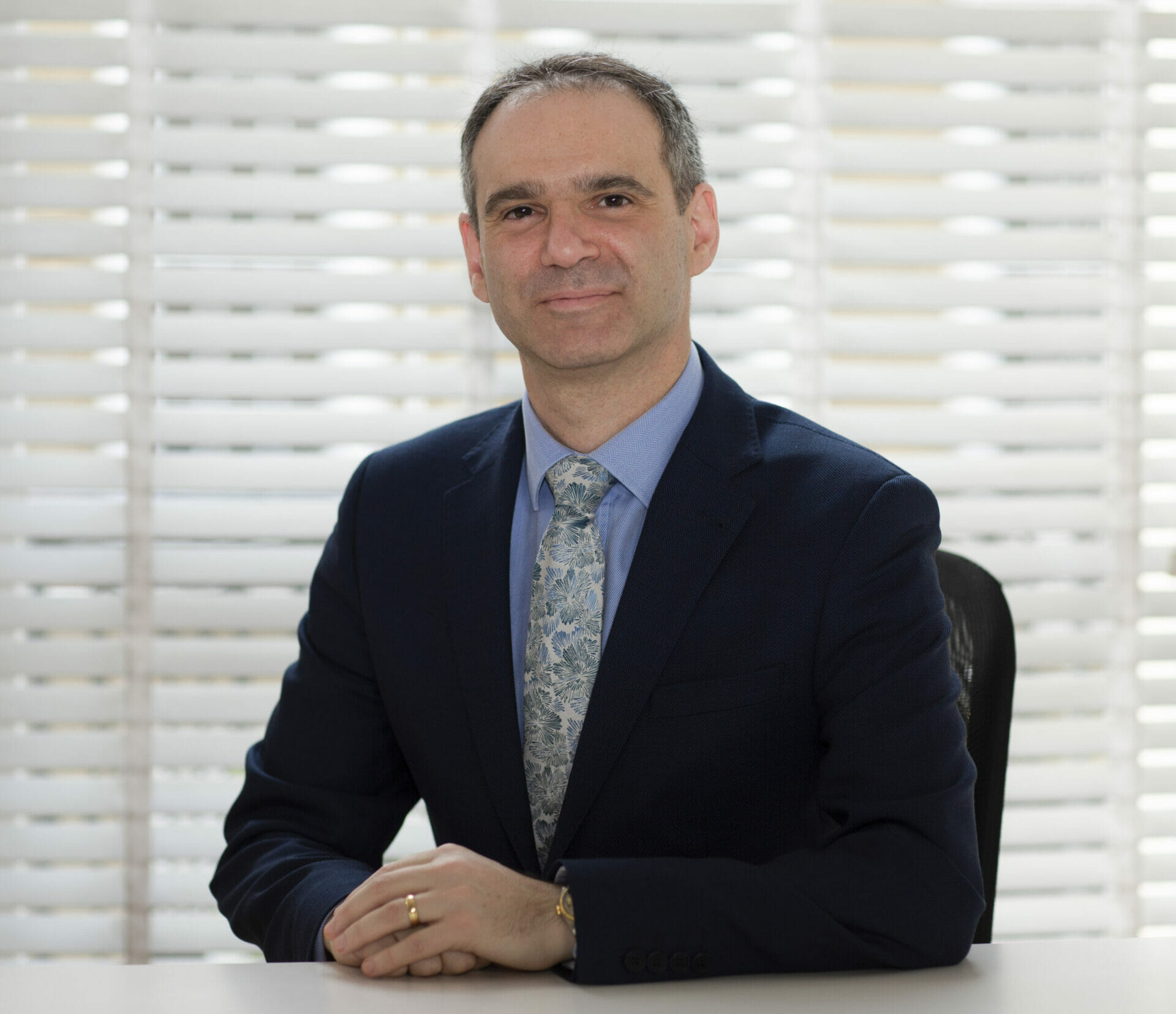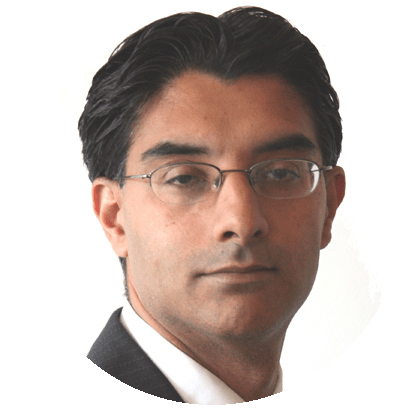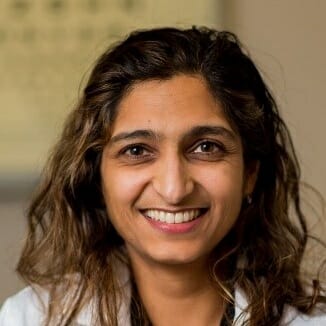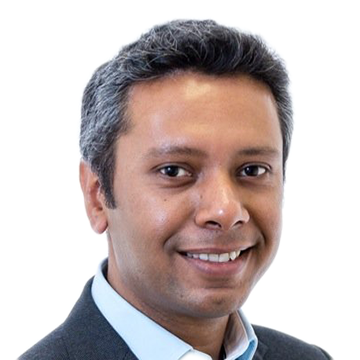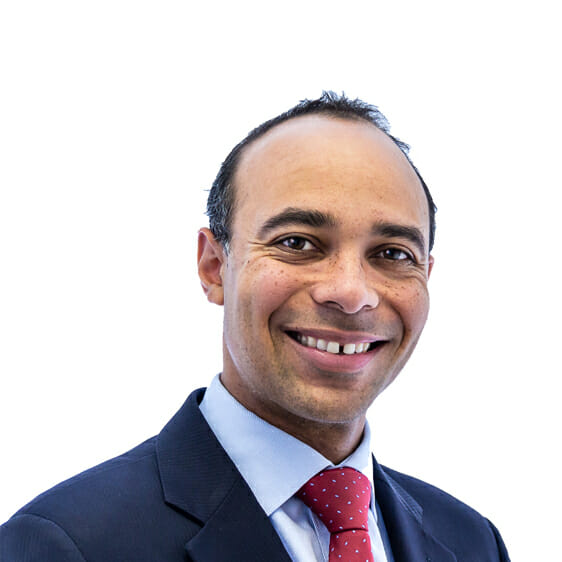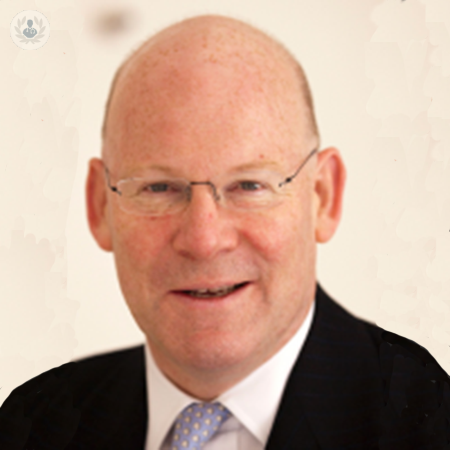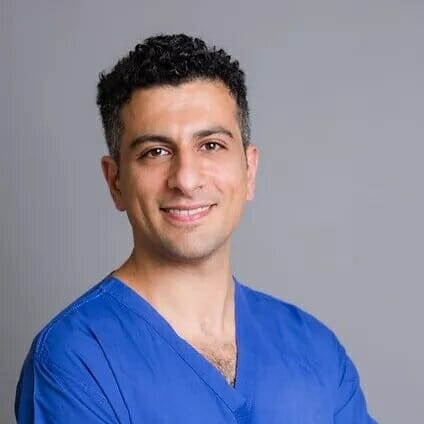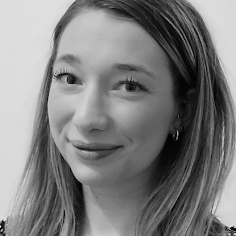London Medical Ophthalmology
Age-related Macular Degeneration (AMD)
At London Medical, we have an outstanding team of retina experts who specialise in the treatment of AMD.
What is age-related macular degeneration?
Age-related macular degeneration (AMD) is a condition in which you experience loss of your central vision. This can make it difficult to read, drive, see fine details or even recognise familiar faces. Age-related macular degeneration is the leading cause of sight loss in the UK.
Understanding AMD
The macula is a small but vital part of the retina responsible for our central vision. The macula allows us to see colour and fine detail. It is located in the centre of the retina at the back of the eye.
Over time the macula can become damaged. There is no known cause of AMD, but age is the most significant factor. Most individuals are diagnosed with AMD in their 50s or 60s. Although AMD causes central vision loss, it does not lead to total blindness as your peripheral vision is retained.
What are the types of AMD?
There are two types of AMD: dry and wet.
Dry AMD is the more common of the two types, with approximately 75% of people experiencing this form. It develops gradually due to the buildup of yellow deposits made up of lipids and proteins called drusen at the back of the eye. Dry AMD causes gradual loss of central vision. Genetics and environmental factors are thought to contribute to this condition. About 10-15% of people with dry AMD develop wet AMD.
Wet AMD is less common but causes more severe eye loss. It’s caused by the abnormal growth of blood vessels beneath the retina that leak blood or fluid, causing scarring of the macula. Wet AMD leads to more severe and faster vision loss, so it’s critical to seek immediate treatment to avoid irreversible vision loss.
AMD signs and symptoms
AMD can affect one or both of your eyes. You should see an ophthalmologist if you experience any of the following signs or symptoms:
- Blurred or distorted area of vision
- Seeing wavy lines that you know are straight
- A dark, empty spot in your central vision
- Colours that appear less bright than they are
- Objects that appear smaller than they are
AMD risk factors
We don’t know precisely what causes AMD, but several risk factors are thought to play a role. The single most significant risk factor is age.
You are more likely to develop AMD if you:
- are over 50
- smoke
- have high blood pressure (hypertension)
- eat a diet high in saturated fat
- have a family history of AMD.
Our approach to treating age-related macular degeneration
At London Medical, we have an outstanding team of retina experts who are the top ophthalmologists in their field. Located on the cutting edge of retina research and involved in the latest treatments for AMD, our experts ensure that your treatment reflects the very latest advances in a rapidly-developing field.
Getting diagnosed
If you have experienced any signs or symptoms of vision loss or want a second opinion, the first step is to have a complete eye exam with one of our AMD consultants.
After arriving at our ground floor office area, you’ll be given a vision test and then administered drops to dilate your eye. Your consultant will then offer one or more of the following investigations to diagnose your condition:
- Optical coherence tomography (OCT) scans – This non-invasive test takes detailed images of your retina and macula.
- Fluorescein angiography – Used to detect and track wet AMD, this investigation involves the injection of a special yellow dye into a vein in your arm. Your technician then takes pictures as the blood moves through your eye's retinal blood vessels.
- Indocyanine green angiography (ICG) – In this investigation, the technician injects a different type of green dye into your hand or arm to record the blood flow of choroidal blood vessels located under the retinal blood vessels.
What are my treatment options for dry AMD?
Although some promising treatments are on the horizon, there is currently no treatment for dry AMD. We understand that this is difficult to accept. Our consultants will offer compassionate support and education that is tailored to your stage of the disease.
If you are in the early stages of AMD, you will not need any intervention. Those individuals whose dry AMD has progressed to an intermediate stage can benefit from taking specific vitamin supplements. Your consultant can advise you on the right evidence-based supplements for you.
For patients with more advanced AMD, we offer a low vision assessment to help you find special low vision aids that can help you adapt to daily life with impaired vision.
What are my treatment options for wet AMD?
With wet AMD, the sooner you get diagnosed and start a treatment programme, the better your visual outcome will be. Several drugs can slow the progression of this disease and protect the vision of patients with wet AMD.
Anti-VEGF injections
Intravitreal injections, called anti-VEGF injections, can reduce the growth and leakage of abnormal blood vessels in your retina. These injections are given several times a year and are highly effective in stabilising and improving vision in patients with wet AMD.
At London Medical, we offer access to the latest and most effective approved drugs on the market, including:
- Eylea
- Lucentis
- Avastin
- Beovu
- Vabysmo.
Vabysmo is a newly approved drug that shows promising outcomes for our patients. A key benefit is its extended dosing regimen which increases the time between injections, meaning fewer injections overall.
Photodynamic therapy (PDT)
Your consultant might recommend photodynamic therapy (PDT) for some types of wet AMD (polyps). This treatment uses a special dye and laser on the back of the eye to close abnormal blood vessels. The procedure is performed at London Medical, which is one of the few private or public eye clinics that offer this therapy.
Lifestyle changes
Although many of us don’t realise it, our retina health is closely associated with our overall health. If you have hypertension, high cholesterol, diabetes or other underlying health problems, you are more at risk for eye problems. There are many ways that you can protect and improve your overall eye health:
- Stop smoking
- Eat an eye-healthy diet rich in dark, leafy greens
- Lose weight
- Protect your eyes from harmful rays of the sun
- Manage conditions such as high blood pressure or cardiovascular disease.
As part of the London Medical family, our eye clinic has access to various specialities — all under one roof. So whether you need a personalised weight management programme, expert nutritional advice or support with quitting smoking, we can help look after your whole health.
Frequently Asked Questions
Our Consultants
Professor Michel Michaelides
Professor of Ophthalmology & consultant ophthalmic surgeon at UCL Institute of Ophthalmology and Moorfields Eye Hospital.
Professor Adnan Tufail
One of the leading ophthalmic surgeons in the UK. He is the clinical and research lead at Moorfields Eye Hospital in London for age-related macular degeneration and has worked as a consultant here since 2002.
Mrs Samantha Mann
Consultant ophthalmologist specialising in medical retina, macular degeneration, retinal vein occlusions and diabetic eye disease including injection and laser treatments.
Mr Praveen Patel
International reputation for providing excellence in patient care with macular disease and is also actively involved in research for finding novel therapies for the condition.
Mr Peter Addison
Consultant ophthalmic surgeon who has vast experience in managing the entire breadth of medical retina and uveitis conditions.
Mr Jonathan Dowler
Former consultant in medical retina at Moorfields Eye Hospital. He retired from the NHS in 2012 to take up full-time private practice in retinal disease including diabetic retinopathy and macular degeneration.
Mr Hadi Zambarakji
Consultant Ophthalmic surgeon based at Barts Health in the NHS with a specialist interest in the management of diabetic eye disease, vitreoretinal surgery and cataract surgery.
Mr Danny Mitry
Leading consultant ophthalmic surgeon with extensive sub-speciality expertise in all aspects of refractive lens replacement surgery, retinal disease, and vitreo-retinal surgery.
Miss Naomi O’Brart
Specialist optometrist at Moorfields Eye Hospital working in contact lens, refraction and low vision clinics.
Mr Robin D Hamilton
A specialist in diabetic retinopathy, age-related macular degeneration, retinal vein occlusions, inflammatory eye disease, and cataract surgery.
Our Location
London Medical is located in the Harley Street medical area. Together with top experts across a range of multi-disciplinary fields, we offer the finest facilities for your care, all under one roof.
Monday to Friday 8.30am to 8pm
Sundays - 9.00am to 2.00pm
Monday to Friday 8.30am to 8pm
Sundays - 9.00am to 2.0pm
Monday to Friday 8.30am to 8pm
Speak to a member of our team
Contact the appointments team
Make an enquiry online using this form and one of our team will be in touch. By using this form you agree with the storage and handling of your data by our team. Alternatively, you can contact us.
You don't need a referral from your GP to make an appointment with us.

